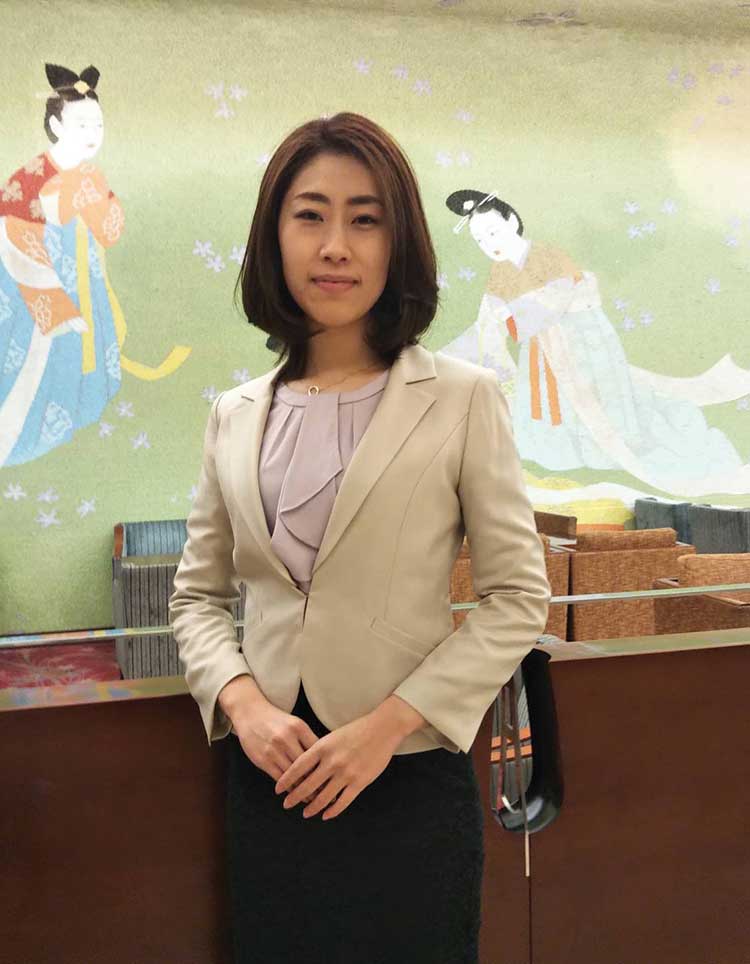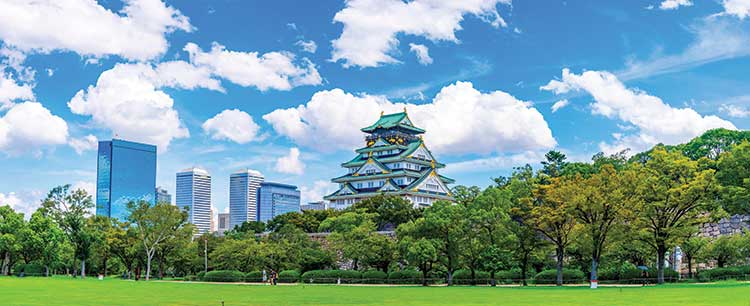IAG speaks with Natsuna Sakurai, director of the Association for Business of Integrated Resort, about the long-term prospects for an Osaka IR in the wake of the COVID-19 pandemic.
Tomo Yamamoto: Can you tell us about the Association for Business of Integrated Resort and its work to date?
Natsuna Sakurai: Our organization was established about five years ago. We have held IR seminars for Small and Medium-sized Enterprises (SMEs) in Tokyo and Osaka, and we have been involved in the exchange of opinions between various industries. There are many SMEs in the Kansai area who have demonstrated particular interest in an IR bid.
We have also discussed with a number of different parties what sort of IR would be best for an economic ripple effect throughout the entire nation of Japan. The objective of our activities is to benefit the local economy.

TY: What is your individual role in all of this?
NS: I have continued to be active in Osaka, where I am based. In addition to speaking at seminars we hold and traveling to give lectures, I am also providing consultations for companies.
I have listened to the opinions on IRs from those who are involved in local revitalization efforts, and participated in volunteer activities in regional events. In order for an IR to become a main tourist attraction for the area and become accepted by the local residents, it is necessary to not only grasp the general discussion but to collect each talking point properly.
I feel this work is closely related to my previous experience in the education and welfare fields, but these industries are also very aware of their relationship to IRs. The relationship may not be obvious, but overseas IR operators are very active and diverse in their contributions to society. They have volunteer corps to support the elderly and provide youth with work experience opportunities and to promote culture and the arts. I feel there is a lot that our local companies can learn from their efforts.
TY: Transitioning from education to IR is quite a leap. What inspired this change?
NS: When I started working in education and welfare, it was the first time I was around young people with disabilities. In title I was their teacher, but I learned a lot from them. Seeing the way they accepted and overcame their own disabilities and how each person was searching for their own purpose in this world was inspiring to me. However, it’s not easy for these people to go out in the world and become independent. We need companies and supporters who are understanding and accepting.
I was impressed by the societal contributions and approach of the IR operators, and I’m hoping a future Japanese IR will lead to more opportunities for our youth who are facing obstacles. I decided that I wanted to work as a liaison to bridge the gap between the IRs and these young people.

TY: The current candidate location for an Osaka IR is Yumeshima, which is also the site for the Osaka-Kansai Japan Expo 2025.
NS: Ever since WWII ended, urban development of the mainly industrial coastal areas of Osaka city has progressed, but there have been many setbacks to this day. In the 1960s, Arabian Oil came up with a plan to develop a petrochemical complex, but that didn’t happen. It was one of the candidate locations for the World Expo that happened here in the 1970s, but in the end the city of Suita was chosen.
During the 1980s, city-building based on a Technoport Osaka plan was in progress. In the 1990s and the noughties the city was working to be a candidate to host the Olympics, but it was not to be.
Ed: Technoport Osaka Project was announced in 1983 as a business to commemorate the 100-year anniversary of Osaka’s government. The concept was to aim for a new central city that would function as an international trade center amidst the accelerating globalization and information-intensive society.
TY: That’s quite a somber history.
NS: Yes. Yumeshima has continuously been deprived of follow-through on plans that would allow it to reach its potential. But now it is the host site for the Osaka-Kansai Japan Expo 2025, and 70 hectares have been arranged on the adjacent land for an IR. It’s not just the government, the residents also want Yumeshima to be put to good use, so there is special meaning to any business that will be conducted there. “Yume” of course means “dream” in Japanese and “shima” means “island.” Just as the name suggests, this island holds the hopes and dreams of many.
The island already has a container port and it serves as important logistics support for the Kansai area. Furthermore, Osaka city and prefecture have started considerations for a supercity concept, which is meant to include Yumeshima as part of its plans. Besides serving as a global tourism hub, the development of Yumeshima will help set an Osaka IR apart from other similar facilities that exist throughout the world.
TY: What can we expect from an Osaka IR?
NS: I believe that whether or not an Osaka IR will succeed depends on how many people’s faces it brings smiles to after opening. In my activities so far, I’ve learned that the local people are wanting an opportunity to interact with the operators. They are very positive about supporting their communities and positive about accepting things that help to build up those communities and give back to the regions.
They don’t want the World Expo or an IR just because of the economic benefits. What they want is a partner that will work together with the people to build up the region.
There is still time before an Osaka IR will come to be. IR operators are spending most of their efforts on providing opportunities for the local people to gain a better understanding about the casino industry, which has never existed in Japan. I believe it is mutual communication that will lead to a deeper understanding of and by the local residents.
 TY: What will be the key point in this endeavor?
TY: What will be the key point in this endeavor?
NS: The most important thing is to use the opening of an IR to create a mindset of building up the community and city in cooperation with a new industry. Due to the effects of COVID-19, the flow of tourists to world destinations has come to a halt. There is no sign of the COVID-19 crisis being resolved anytime soon, but I believe that recovery of the world economy will come through human interaction and travel.
Osaka Mayor Ichiro Matsui suggested that the schedule for the official IR bidding process may be postponed due to difficulty in keeping in contact with MGM Resorts due to the pandemic, but I don’t believe this lowers any expectations for an Osaka IR.
Of course, it’s difficult to discuss the future of a Japanese IR at this time. The application deadline set by the national government is still July 2021 and no extension has been announced thus far. The first thing we all need to do as individuals is overcome this crisis – do whatever we can to reach the end of this crisis as soon as possible and go back to our communities living happy lives.
































